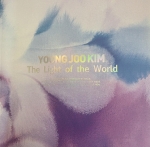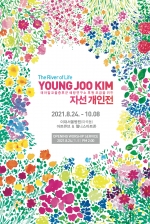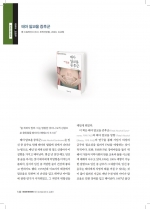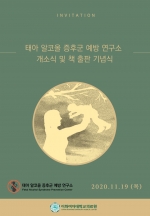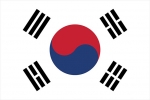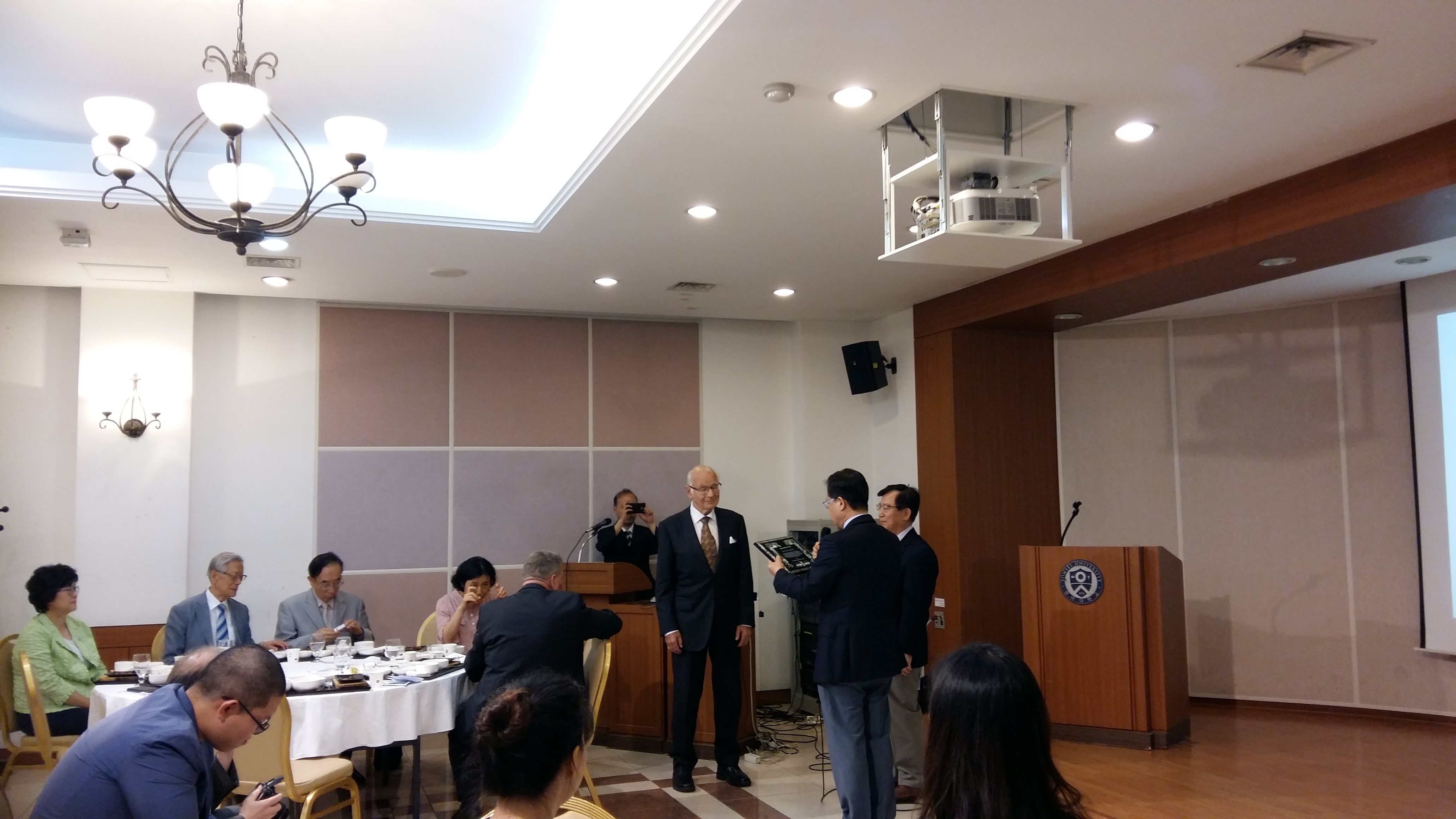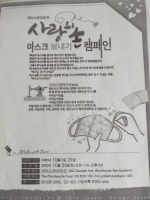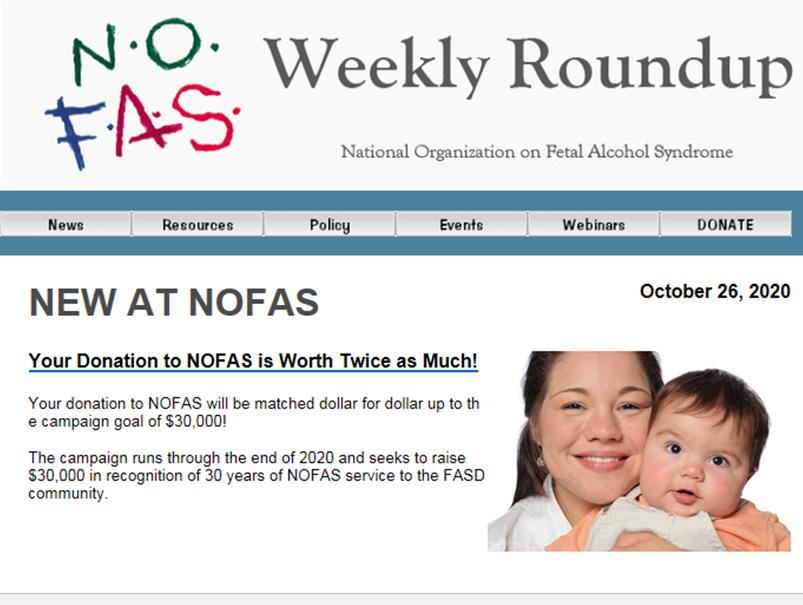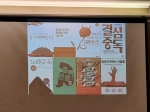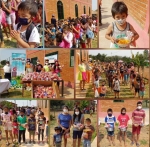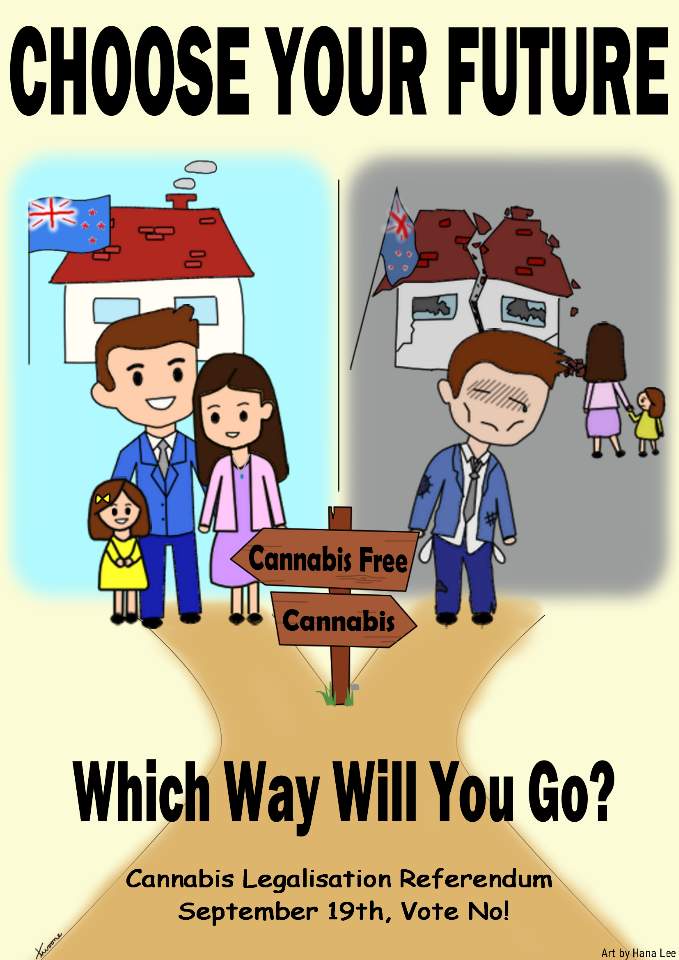WWCTU 세계기독교여자절제회 2017년 노벨 평화상 후보 추천
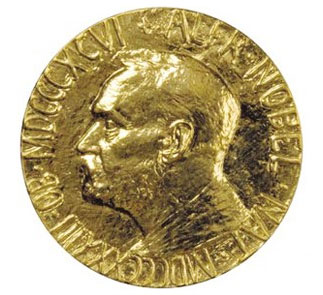
“2017년 노벨 평화상 후보 지명”을 적극 지지한다.
2017년 노벨 평화상 지명
아래 서명에 동참한 이들은 세계절제 운동을 적극 지지하며 세계 절제 운동에 기여하는 가장 큰 국제 기관들:
• IOGT International www.iogt.org (국제 절제회)
• International Blue Cross (IBC) www.ifbc.info (국제 블루 크로스)
• The World Woman's Christian Temperance Union (WWCTU) www.wwctu.org (세계 기독교 여자 절제회)
를 2017년 노벨 평화상 후보에 추천한다.
지난 2015년 11월, 193개의 국가들이 유엔의 지속 가능한 발전목표 (SDGS)를 채택했다. 이 목표는 2030년까지 세계 발전 및 성공의 기준점이 될 것이다. 지속가능성에 초점을 맞추면 세계 평화에 기여할 것이다. 알코올과 마약으로 인한 폐해는 이런 지속 가능한 발전 목표에 악영향을 주고 있다. 세계적으로 예방을 위한 조치들과 효과적인 정책이 수립되어야 이 목표를 달성할 수 있을 것이다.
국제 절제회는 1800년대 중반부터 많은 나라에서 가장 인기가 많은 운동으로 역할을 수행해 왔다. 국제 절제회 (IOGT)와 세계 기독교 여자 절제회 (WWCTU)는 각각 미국에서 1851년과 1874년에, 블루크로스는 스위스에서 1877년에 시작되었다. 이 단체들은 급성장을 하여 짧은 기간 내에 국제기구가 되었다.
이 운동들은 개인적 책임감 강조와 사회적 인식확산을 중점에 두는 동시에 알코올과 마약 소비를 최소화 하는 정책 채택을 위해 정치적 노력을 하고 있다. 많은 연구들은 어떤 정책들이 가장 효과적으로 술과 마약에 의한 폐해를 최소화 하는 지 보여주고 있다. 하지만 이 운동에 대해 주류 산업자들은 강력하게 반발하고 있다. 이미 담배 산업의 로비활동 (lobbying)의 전례를 보아 왔기에 개인의 자유를 억제하는 것이라고 반박한다.
절제운동의 노력이 없었다면 정치적으로 술과 담배 중독을 예방하고 아동과 여성을 보호하는 정책들이 시행되지 않았을 것이다. 주류산업은 현재 개발 도상국으로 눈을 돌려 알코올에 익숙하지 않은 "새로운" 시장에 술을 어떻게 팔 것인지 고민 중에 있다. WHO는 음주와 약물을 저지하는 국가들을 지키도록 돕는 것이 세계 발전에 선한 영향을 끼칠 것이라고 여러 번 강조해 왔다.
알코올과 마약 복용은 개인 건강에 중요 위험요소이며 지속가능한 발전을 지체시킨다. WHO는 세계적으로 알코올 때문에 매년 330만명이 사망한다고 예측했다. 알코올은 운동 부족, 담배, 그리고 영양실조를 포함해 비전염성 질병 중 주위험인자로 꼽힌다. 개발도상국들, 특히 남성 인구에 심각한 위험을 끼치는 "시장의 전염성"에 대해 우려하고 있다. 하지만 가장 치명적인 영향을 받는 이들은 여성과 어린이들이다. 알코올과 담배로 인한 부작용들은 대대로 빈곤을 가져 왔으며 인간의 발전을 위협해 왔다. 전세계적으로 알코올은 직장생활을 가장 많이 하는 25~29세 연령대의 질병과 조기사망의 가장 큰 위험요인으로 작용한다. 음주로 인한 생산성의 손실도 크다. 알코올과 마약의 복용은 지속가능한 발전의 여러 측면에서 피해를 주고 있다.
알코올이 모든 범죄의 원인은 아니지만, 빈번히 범죄를 일으킨다. 알코올이 가정과 공공장소에서의 범죄와 관련성이 있음을 분명히 알 수 있다. 이에 대해 여러 국가에서 연구 결과가 보고된 바 있다.
유럽 같은 경우, 음주로 인한 폭력과 가정 내 폭력으로 인한 희생자가 66% 이르고 있다. 아르헨티나는 68%로 추정된다. 남아프리카, 인디아, 우간다, 베트남과 짐바브웨의 경우, 음주로 인한 학대로 약 66%의 여성들이 파트너의 폭력에 희생되고 있음을 보고하였다.
알코올은 아동학대의 대표적 요인 중 하나이다. 통계에 의하면, 유럽의 아동 중 최소 900만 명의 아동들이 알코올 남용 문제가 있는 부모에게서 양육받고 있다. 또한, 대략 16%의 아동 방치, 혹은 아동학대 사건들이 알코올과 연관이 있고, 미국에서만 약 2천 600만 아동들이 알코올 혹은 마약 중독자 부모에게서 양육받고 있다. 이와 더불어, 1 L의 맥주를 생산할 때 25 L 이상의 물이 필요하다고 한다. 세계적 알코올 산업의 제조, 유통과 판매는 세계의 물과 음식 활용에 부정적인 영향을 미치고 있음을 명백히 알 수 있다.
알코올과 마약 등의 중독성 물질들은 글로벌 사회의 지속력뿐만 아니라, 세계 평화를 위협한다. IOGT, IBC와 WWCTU의 활동은 이런 문제들을 맞서는 데 가장 중요한 역할과 노력을 하고 있다. 강력하고 대중적인 절제운동이 술과 마약의 남용으로 인한 피해자들을 보호하는데 필수적임이 명백히 증명되어 왔다. 또한, 세계 기업들은 경제적 이익으로 인해, 이러한 운동들을 반대하고 있음에도 불구하고 알코올과 마약 남용으로 인한 피해를 최소화 하고, 지속 가능성 목표를 달성하는 데 큰 역할을 담당하고 있다.
여기에 지명된 3개의 기관은 많은 나라들을 대표하고 있고, 모두 견고한 국제 네트워크를 구축해 왔다. 또한, 유사한 목표를 가지고 있는 기관들과 협력하며, 글로벌 포럼과 네트워크에 활발히 참여해 왔다. 이 공로에 대한 평화상은, 술과 마약으로 인한 막대한 사회적 문제에 대하여 계의 관심을 집중시키고, 중독성 물질의 폐해와 절제운동의 중요성에 대한 인식을 높이는 귀중한 지원이 될 것이다.
위에서 언급 한 바와 같이, IOGT, IBC, 와 WWCTU를 2017년 노벨상 수상 후보로 지명한다.
연세대학교 교수 (은퇴)
Nomination for the Nobel Peace Prize for 2017
The undersigned hereby nominate THE INTERNATIONAL SOBRIETY AND TEMPERANCE MOVEMENT represented by the movement’s largest international organizations:
• IOGT International www.iogt.org
• International Blue Cross (IBC) www.ifbc.info
• The World Woman's Christian Temperance Union (WWCTU) www.wwctu.org
for the Nobel Peace Prize for 2017.
In November 2015, 193 member states adopted the UN's new sustainability goals. These are benchmarks for success in global development towards 2030. In achieving sustainability we believe the world community will also find easier solutions towards world peace. Damage caused by alcohol or drug use adversely affect many of the sustainability goals. Putting in place preventive measures and effective drug policies globally will be important steps towards reaching these important goals.
The international sobriety and temperance movement has since the mid-1800s been one of the largest popular movements in a host of countries. IOGT and WWCTU began in the
The movement points towards personal responsibility and towards the importance of a popular mobilization, while at the same time working politically for adoption of policies that will help to keep the consumption of alcohol and drugs at a low level. Research has shown what policies would effectively reduce consumption and thus damage. Such measures meet resistance, both because they allegedly restrict individual freedom and because there is a strong counterforce in the alcohol industry, an industry that has taken lessons from the mistakes of the tobacco industry and their lobbying against smoking regulations.
Without the political struggle of the temperance movement as advocates for children, women and the alcohol and drug addicted the use of regulatory tools would have been extremely difficult. We see this in the developing countries of our time where the alcohol industry is heavily into “fresh” markets, markets where a large portion of the population does not currently use much alcohol. WHO has on several occasions pointed to the importance of retaining the restrictive attitudes towards alcohol and drugs that we find in these countries if we are to ensure a continued positive global development.
Alcohol and drug use is a major risk factor for individual health and at the same time slows down sustainable development. WHO has estimated that nearly 3.3 million deaths occur globally each year due to harmful use of alcohol. Alcohol is along with physical inactivity, tobacco and malnutrition one of the four main risk factors when it comes to non-communicable diseases.
We are in this case concerned with “market created epidemics” that does severe damage to many developing countries, especially to the male populations in these countries. However, it is often women and children who are most affected. Problems caused by alcohol and drug use can keep generations of vulnerable individuals in a negative spiral of poverty, and they threaten human development. Globally alcohol is the greatest risk factor towards ill health and premature death in the age group 25-59 years, the age group that is most active in the workplace. Productivity loss due to alcohol consumption is great. Harmful alcohol and drug use effects sustainable development on many levels.
Alcohol is not the only cause of violence, but is often the factor that ignites the violence. There is a clear link between alcohol and violence in the home and in public places. We can see this link in research done in several countries and continents.
In
Alcohol is a factor in violence against children. In
As we have seen, use of alcohol and other drugs is a major threat to the world community’s sustainability goals and world peace. The work IOGT, IBC and WWCTU is doing is probably the most important effort in combating this threat today. A vibrant and popular temperance movement has proved to be vital in the implementation of measures to protect populations from damage caused by alcohol and drug use. They are also in the forefront to minimize damage already caused, and to help in reaching sustainability goals. Strongly opposing them we find big global corporations with their economic interests.
The organizations here nominated are represented in most countries and all three have built up solid international networks. They also participate in other networks and global processes together with organizations with similar goals. A Peace Prize for this work will focus world attention on the immense problems caused by alcohol and drugs and be an invaluable support for the idealistic opposition forces and the sobriety and temperance movement.
As mentioned above, I hereby sign to nominate IOGT, IBC, and WWCTU to receive the Nobel Prize for 2017.
Dr. Jung Joo Kim (Th.D. New Testament, '89 Harvard)
Professor, Retired,




 댓글 0개
| 엮인글 0개
댓글 0개
| 엮인글 0개
-
-
 W-Space갤러리 전시회
W-Space갤러리 전시회
- 프리즈아트페어가 열리니 국제적으로 많은 손님들이 한국을 찾습니다. 그들 가운데 W-Space갤러리를 찾는 분들이 또 있습니다. 800여 명의 손님들이 W-Space갤러리를 찾았습니다.김영주절제회장님의 W-Space갤러리에도 흰두교인과 티베트불교인, 모슬렘인들, 믿음에 첫 눈을 뜨게 된 스위스 교포들 등이 김영주 상설전시실을 방문하고 작품을 보며 경탄하다가 화가의 입을 통해 복음을 듣고 놀라며 카타로그를 소중하게 안고 떠났습니다. 세계 미술계를 대표하는 미술계 기자, 수집가, 이벤트전문가들이 김성주회장님 소개로 W-Space갤러리를 ...
- 새소식 절제회 2024.02.13 15:31
-
-
-
 [전시회ㅣ8월 24일-10월 8일 이대마곡병원] 태아알코올증후군 예방 연구소 기금 마련 전시회 및 오픈식
[전시회ㅣ8월 24일-10월 8일 이대마곡병원] 태아알코올증후군 예방 연구소 기금 마련 전시회 및 오픈식
- 새소식 절제회 2021.06.17 10:37
-
-
-
 [월드뷰 5월] 가족형성 : Book & Review <태아알코올증후군>
[월드뷰 5월] 가족형성 : Book & Review <태아알코올증후군>
- 절제회기사 절제회 2021.05.06 11:18
-
-
-
 태아알코올증후군예방연구소 개소식 및 책 출판 기념식
태아알코올증후군예방연구소 개소식 및 책 출판 기념식
- Fetal Alcohol Syndrome 번역본을 펴내면서 술 취하지 말라 이는 방탕한 것이니 오직 성령으로 충만함을 받으라 (에베소서 5:18) 1995년 오스트레일리아에서 개최된 제33차 세계기독교여자절제회 세계대회 주강사, 앤 스트라이스구스는 태아알코올증후군 (Fetal Alcohol Syndrome, FAS)을 가지고 태어난 신생아가 살아가면서 겪을 고통을 나누면서, 예방을 위해 여성은 임신 중 꼭 금주해야 한다고 했다 (https://www.washington.edu/alumni/columns/june97/str...
- 새소식 절제회 2020.10.19 13:39
-
-
-
 대한민국은 자유 대한민국, 우리는 자유 대한민국의 국민입니다.
대한민국은 자유 대한민국, 우리는 자유 대한민국의 국민입니다.
- 동해물과 백두산이 마르고 닳도록하나님이 보우하사 우리나라 만세무궁화 삼천리 화려 강산 대한 사람 대한으로 길이 보전하세남산 위에 저 소나무 철갑을 두른 듯 바람서리 불변함은 우리 기상일세무궁화 삼천리 화려 강산 대한 사람 대한으로 길이 보전하세가을 하늘 공활한데 높고 구름 없이 밝은 달은 우리 가슴 일편단심일세무궁화 삼천리 화려 강산 대한 사람 대한으로 길이 보전하세이 기상과 이 맘으로 충성을 다하여 괴로우나 즐거우나 나라 사랑하세무궁화 삼천리 화려 강산 대한 사람 대한으로 길이 보전하세
- 일반 절제회 2018.04.26 13:27
-
-
-
 다니엘의 중보기도
다니엘의 중보기도
- 다니엘의 기도(9장 1절-19절) Daniel's Prayer (Daniel 9:1-19) 크시고 두려워할 주 하나님, 주를 사랑하고 주의 계명을 지키는 자를 위하여 언약을 지키시고 그에게 인자를 베푸시는 이시여 우리는 이미 범죄하여 패역하며 행악하며 반역하여 주의 법도와 규례를 떠났사오며 우리가 또 주의 종 선지자들이 주의 이름으로 우리의 왕들과 우리의 고관과 조상들과 온 국민에게 말씀한 것을 듣지 아니 하였나이다 주여, 공의는 주께로 돌아가고 수치는 우리 얼굴로 돌아옴이 오늘과 같아서 유다 사람들과 ...
- 절제회기사 절제회 2018.04.26 13:26
-
-
-
 토마스 선교사 순교와 그 증인, 사무엘 마펫 선교사
토마스 선교사 순교와 그 증인, 사무엘 마펫 선교사
- 토마스 선교사 순교기 코리아닷컴 <조선에 부르심을 받다> 저자 스텔라프라이스 교수는 4월 14일에 방한하여 양화진을 방문하고 부산 고신대, 군목모임, 대한기독교여자절제회, 연세대에서 토마스 선교사의 순교로 뿌린 복음이 평양대부흥과 한국에 전파되기까지 생생한 하나님의 인도하심을 전하며서 그의 희생이 결코 헛되지 않음을 상기시키고 믿음의 경주를 다하도록 격려 하였다. 토마스 선교사 순교와 그 증인, 사무엘 마펫 선교사 추모 The Martyrdom of Missionary Robert Jermain Thomas, ...
- 새소식 절제회 2017.04.28 15:11
-
-
-
 “젠더 이데올로기에 대한 대항
“젠더 이데올로기에 대한 대항
- 현재 세계적으로 일어나고 있고 한국에도 거세게 일어나고 있는 동성애와 동성결혼 합법화 운동의 뿌리가 무엇인지 아십니까? 피터 바이어하우스 박사님은 87세의 연로하신 몸을 이끌고 강연을 통해서 한국교회를 견고하게 지켜 나가도록 돕고자 방한하여 2주동안 교회와 신학자들, 학교에서 성차별폐지운동의 뿌리가 무엇이며 목적이 무엇인지 분석하여 강연함으로 한국교회를 성결하게 지켜나가도록 도왔습니다. 첨부파일을 널리 나누어 마지막 때 주님의 교회와 가정을 지켜나가는 파수꾼의 역할을 잘 감당하는 이 시대 그리스도인들이 ...
- 새소식 절제회 2016.06.13 11:47
-
-
- [강남지부활동] 2020년 금연금주 1차 전문가 양성
- 새소식 절제회 2020.11.25 08:49
-
- 뉴질랜드 마스크 캠페인
- 새소식 절제회 2020.10.28 11:29
-
- NOFAS Roundup - Outcomes of FASD Diagnosis
- 일반 절제회 2020.10.28 11:26
-
- ‘집콕’ 7개월 “학교 왜 가요?”…달라진 건 학교뿐이 아니었다
- ‘집콕’ 7개월 “학교 왜 가요?”…달라진 건 학교뿐이 아니었다 이성희 기자 mong2@kyunghyang.com 원문보기: http://news.khan.co.kr/kh_news/khan_art_view.html?artid=202010190600035&code=940401#csidx15f91bac84f4f958281a9cf64e766e6 학교 빈자리 메우려한 제도가되레 학교의 설자리 지워버려 두 아이가 상가건물 입구 계단에 앉아 있었다. 한 아이는 상처가 났는지 양말을 벗어 발등을 살펴보고 있다. 다른 아이는 몸을 잔...
- 일반 절제회 2020.10.19 13:46
-
- 재뉴대한기독교여자절제회 9월 25일 YTC 제2차 세미나
- YTC 제2차 세미나 첫날을 잘 마쳤습니다. 학생 12명과 어른 8명 모두에게 유익한 시간이었습니다. 함께 해주신 이미경 선교사님과 절제 임원, 회원들께 감사드립니다. 6시 <1부>- 강의 1 중독의 원인 - 강의 2 하나님을 향한 갈망의 마음을 빼앗는 중독 7시 <2부> - 강의 3 스마트폰 오용에 대해- 소그룹 활동_스마트폰 사용 진단과 슬기로운 사용법 토의 재뉴대한기독교여자절제회 카카오톡 채널 개설 : https://pf.kakao.com/_ZadlK
- 새소식 절제회 2020.09.28 15:38
-
- 하루 한 잔 정도는 심장에 좋다? 'NO' 이득 없어
- 하루 한 잔 정도는 심장에 좋다? 'NO' 이득 없어 헬스조선 2020.09.28 서울아산병원 신경과 장준영 교수, 서울대병원 가정의학과 박상민 교수 연구팀은 국민건강보험공단 표본(2007~2013년)을 바탕으로, 비음주자 11만2403명을 음주량 변화에 따라 '비음주 유지군'과 '음주군'으로 나눠 3년간 건강상태를 분석했다. 그 결과, 하루 평균 10g 이하(한 잔 기준)의 알코올을 섭취한 '소량 음주군'에서 뇌졸중 발생위험이 '비음주 유지군'에 비해 유의하게 감소하지 않았다. 또한 모든 원인에 의한 사망 위험 역시 비...
- 연구기사 절제회 2020.09.28 12:49
-
- 파라과이 어린이들의 기도
- 파라과이는 8월 16일이 어린이날 입니다. 해마다 교회에서 특별 행사를 하며 어린이들에게 선물을 나누면서 즐거운 시간을 가졌는데 올해는 팬데믹으로 어린이날 행사를 가질수가 없게 되었습니다. 사회적 격리가 시작되고 6개월째 교회도 나올수 없고 학교도 가지 못하고 냄비를 들고 무료급식을 받기 위해 오고 있는 어린이들에게 절제회 사랑의 후원에 힘입어 빌예따 도시와 산 로렌소 도시에서 이틀간 450명의 어린이들에게 선물을 주면서 주님의 사랑을 전하는 시간을 가졌습니다.8월 16 어린이날을 앞두고 팬데믹으로 교회도, 학교도 가지 못하고 ...
- 새소식 절제회 2020.09.22 12:42
-
- “에너지에 좌가 어딨고 우가 어딨나…효율이 있을 뿐”
- [전영기 칼럼니스트의 눈] “에너지에 좌가 어딨고 우가 어딨나…효율이 있을 뿐” 입력2020.08.25. 오전 12:19 출처 : https://n.news.naver.com/article/025/0003028889?lfrom=kakao캘리포니아 정전 사태에서 배울 것태양광·풍력,간헐성 문제 극복해야돌파구는 디지털과 생명공학 융합 한국 원자력으로 세계 제패 가능해 김영훈 대성그룹 회장의 ‘신재생 이후’ 김영훈(68) 대성그룹 회장은 몽골 등에서 태양광과 풍력을 결합해 24시간 ...
- 새소식 절제회 2020.09.22 12:31
-
- 미국에서 온 가장 귀한 헌금
- 오랜만에 인사와 소식 전해드립니다. 미국 역시 한국처럼, 코로나 19로 인해 3월부터 참 많은 변화가 일어나고 있습니다. 코로나로 절제회 멤버들과 3월을 마지막으로 이후엔 모임을 가지지 못했습니다. 대신 저소득층 산모들의 교육과 출산을 돕고 있는 기관에서 FASD 관련한 미국 질병관리본부 (CDC)에서 받은 교육자료들을 또한번 나누었고 특히 그 클리닉에서 일하는 Health Educator에게 산모들을 교육할 때 사용해 줄 것을 부탁했습니다. 너무 고마워했습니다. 또한 알코올 관련한 교육을 이미 하고 있는 몇개의 non-pro...
- 새소식 절제회 2020.08.26 17:59
-
- 코로나 바이러스는 한국 국민으로부터 시작되지 않았습니다.
- 정부 "10일부터 중국 후베이성 관련 입국제한·사증 조치 해제" 연합뉴스언론사 선정 2020.08.07. 출처 : https://news.naver.com/main/read.nhn?mode=LSD&mid=sec&sid1=102&oid=056&aid=0010881389정부가 코로나19 발생 지역인 중국 후베이성에 적용했던 입국 제한과 사증 관련 조치를 오는 10일부터 해제하기로 결정했습니다.중앙재난안전대책본부는 오늘(7일) 정부 세종청사에서 열린 정례 브리핑에서 "최근 중국의 코로나19 관리 상황이 호전...
- 일반 절제회 2020.08.26 17:39
-
- 최전선에 서 있는 의료인들
- 일반 절제회 2020.08.13 10:46
-
- WCTU JAS 2020 White Ribbon Bullentin
- 새소식 절제회 2020.08.10 15:50
-
- 여성인권을 후퇴시키는 차별금지법
- 차별금지법 속의 여성 역차별 분석 요약 출처 : GMW연합 블로그 (https://m.blog.naver.com/dreamteller/222039678336) 발제자 : 정선미 변호사행사내용 : <차별금지법에 숨겨진 여성 역차별 대응방안> 포럼 주최 : 서정숙의원, 바른인권여성연합일시 및 장소 : 2020년 7월23일, 국회의원회관 1. 충분한 개별적 차별금지법이 이미 제정되어 있다. 1) 양성평등기본법은 제1조(목적)에서 “이 법은 「대한민국헌법」의 양성평등 이념을...
- 일반 절제회 2020.07.30 10:58
-
- 임신 중에만? 임신 전 음주도 태아 발달에 나빠
- 임신 중에만? 임신 전 음주도 태아 발달에 나빠 코메디닷컴 2020. 07. 28.출처 : http://kormedi.com/1321232/%EC%9E%84%EC%8B%A0-%EC%A4%91%EC%97%90%EB%A7%8C-%EC%9E%84%EC%8B%A0-%EC%A0%84-%EC%9D%8C%EC%A3%BC%EB%8F%84-%ED%83%9C%EC%95%84-%EB%B0%9C%EB%8B%AC%EC%97%90-%EB%82%98%EB%B9%A0/◆ 실험동물모델 연구= 국립보건연구원의 동물모델 연구에 의하면 임신 전 음주는 임신 능력을 감...
- 일반 절제회 2020.07.29 17:45
-
- [서울대 시국선언문] 선거 무효, 국민주권 유린
- 서울대학교 재학생 졸업생 동문, 부정선거관련 시국선언 파이낸스투데이 2020.7.28출처 : http://www.fntoday.co.kr/news/articleView.html?idxno=225980서울대학교 동문 4·15 부정선거 시국선언문서울대학교 재학생 및 졸업생 214인은 2020년 4월 15일에 실시된 대한민국 제21대 국회의원 총선거에 대해 불거진 부정선거 의혹(이하 4·15 부정선거 의혹)에 대한 철저한 진상규명을 요구한다.대한민국 헌법 제24조는 “모든 국민은 법률이 정하는 바에 의하여 선거권을 가진다.”라고 규정하여...
- 일반 절제회 2020.07.29 10:02
-
- 더 이상 약자도 피해자도 아닙니다.
- 이승만 건국대통령 서거 55주년 “그리스도께서 우리를 자유롭게 하려고 자유를 주셨으니 그러므로 굳건하게 서서 다시는 종의 멍에를 메지 말라”Posted on 07/19/202007/19/2020 by 위드코리아USA 편집국 출처 : http://withkoreausa.com/archives/5505이승만 대통령이 하셨던 마지막 기도는 오늘날 우리에게 세 가지 명심해야 할 교훈을 준다.첫째는 우리가 누리는 이 자유는 하나님의 은혜로 말미암은 것이고, 둘째는 그것을 빼앗고 우리에게 종의 멍에를 지우려고 하는 악한 세력이 존재한다는 것이...
- 일반 절제회 2020.07.28 12:45
-
- 국민 기본권을 훼손하는 위헌, 차별금지법
- 안창호 전 헌법재판관(2012년 9월-2018년 9월)1. 국민의 자유와 기본권 제약 헌법 11조 1항 법적기회평등에 따라 국민의 자유와 권리는 타인의 자유와 권리를 침해하지 않는 범위에서 보호되고, 관점에 따른 규제와 차별은 엄격히 제한되어야 한다. 그러나 차별금지법은 합리적이고 사실에 근거한 정당한 비판조차 제한하는 심각한 관점 차별을 초래한다.2. 역차별 3. 헌법이 추구하는 공동의 가치와 공동선 파괴 “포괄적 차별금지법 시행 땐 ‘동성애의 죄성’ 설교 못한다” 국민일보 25면 TOP 2020.07.20.출처 : http:...
- 일반 절제회 2020.07.28 11:42
-
- 뉴질랜드대한기독교여자절제회 YTC 세미나 자료
- YTC Winter Seminar 'Ignite'의 주제인 '마리화나의 해악과 합법화 반대'에 대한 학생들의 세미나와 Productions <YTC 2020> NO Marijuana Legalisation 에 대한 Production 1. 포스터 부분이00(17세)https://drive.google.com/file/d/19BNNpwPHMUaXgojWkuUHH-x4zyUDSMPP/view?usp=sharing2. 동영상 부분(1) 윤00 (오클랜드대학교 공대1) https://drive.google.com/file/d/...
- 새소식 절제회 2020.07.27 16:21

 신고
신고 인쇄
인쇄 스크랩
스크랩


